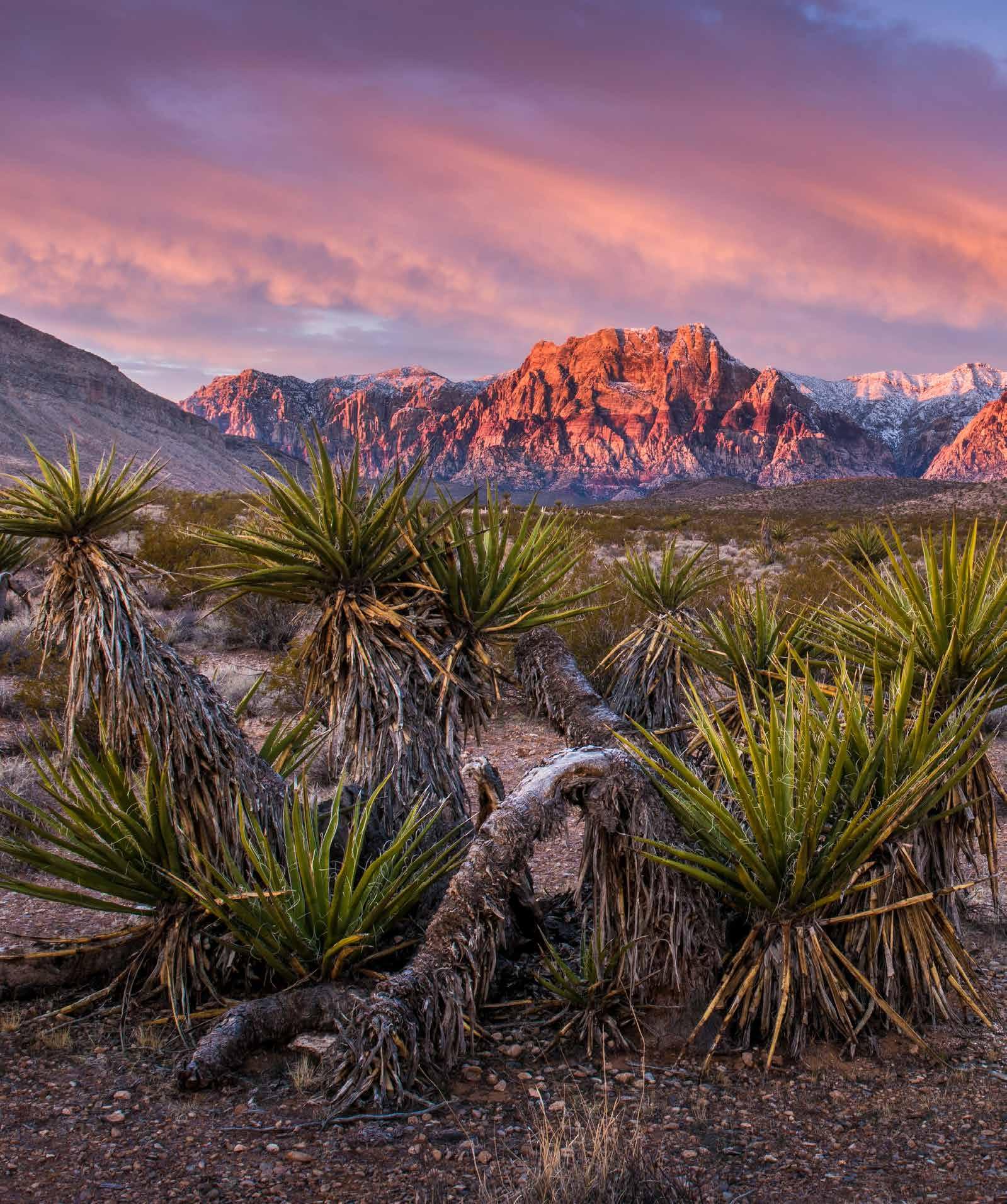
13 minute read
A different blend Difference Coffee Co’s Amir Gehl introduces Tempus to the world’s best coffees
A DIFFERENT BLEND
As Difference Coffee Co brings gourmet coffee to London’s top restaurants, founder Amir Gehl shares his passion for the world’s finest and rarest roasts
Words: Michelle Johnson
Britain isn’t doing its coffee justice. It’s true. With 95 million cups consumed every day in the UK, coffee has been firmly established as a staple of our national diet but, despite the variety of specialty roasts on offer, relatively few of us seem to be in the know when it comes to coffee grading.
While we might be well-versed in Fairtrade and sustainablysourced coffee, the true quality of the bean is measured much like a fine wine and, says Difference Coffee Co founder Amir Gehl, it’s worth being enjoyed in the same way.
Founded five years ago, Difference Coffee Co offers awardwinning coffees from the world’s most outstanding estates and is beloved by three-Michelin-starred chefs the world over – with chef patrons including Guy Savoy, Alain Passard, Sat Bains and seven-star chef Anne-Sophie Pic. While restaurants and private members’ clubs including 67 Pall Mall and Ten Trinity Square serve Difference Coffee to its guests, this year the brand became the exclusive partner of Park Lane’s Parcafé, offering three different roasts – including the award-winning Esmeralda Geisha – to its Mayfair café customers.
Here, Gehl tells Tempus how he’s making a difference in the coffee trade, and why his award-winning coffees are delighting the world’s best chefs… »

Amir, What do you look for in an extraordinary coffee?
Essentially, coffee is all about taste and flavours. But 99% of all arabica coffee in the world is sold as a commodity – it’s approximately priced at $1 USD per pound. When we take a speciality coffee, it is sourced directly from specific farms where roasters, like ourselves, are prepared to pay a premium for higher grades. There’s a 100-point grading system created by the Speciality Coffee Association (SCA), which works in a similar way to wine grading. The SCA will reward attributes such as fragrance, flavour, aftertaste. The main difference is that in coffee, unlike wine, you have to be licenced to grade coffee. The quality graders give the coffee a grade out of 100 – for speciality coffees, we’re looking for high 80s and 90-plus. And because Difference Coffee Co buys some of the highest-scoring coffees in the world, they are also some of the most delicious.
What are coffee quality graders looking for?
Coffee grading looks at various elements, including the effect of the roasting process. Coffee has a degree of bitterness and acidity coming from the bean, and in roasting the bean it absorbs all those aromatic flavours from the caramelisation of sugars in the cherry. Coffee beans can be chocolatey and nutty, floral or citrusy. If you taste our Esmeralda Geisha coffee, it’s very floral and sweet. It tastes almost like an Earl Grey tea. It’s really, really special.
Many commercial coffees aren’t so great; they’re roasted really dark so you get a lot of burnt ash on the palate. But then, milk is a flavouring agent; it brings out a lot of the flavours of a great coffee, so there’s no reason you can’t drink a speciality coffee your own way. Like wine and whisky, the best coffees in the world are not blends – they are from single estates, single expressions. The consistency of quality is down to the farmers, the water, the soil. Just like great wine, if it didn’t happen in the field, it’s not going to happen in your cup.
Difference Coffee Co began by offering capsules for private purchase. What inspired you to do this?
At first I didn’t like coffee; my family was in the tobacco business, and I have always loved wine, whisky and cigars. But I thought, if it’s about good taste, how can it be that I don’t enjoy coffee when it’s the most consumed drink in the world? I decided I had to learn about it and so I researched the best coffees, bought a selection from Harrods. Then, I bought a kilo of Kona from Hawaii for about £200. I filled up some espresso capsules, put them in the machine to brew, and out came a drink that was substantially better.
I thought, hold on; I know lots of people going to Starbucks and artisanal coffee shops for speciality blends, so why not give them the best coffees in the world for their espresso machines at home? That’s where we started learning about coffee grading, competitions and auctions, and working with graders to identify the best coffees. I now believe capsules are the best way to drink coffee at home. Firstly, because more people used espresso machines than coffee grinders or cafetières, so it’s convenient for them. We only sell our capsules online – although we may start selling them in Parcafé, because customers have been asking for them –and we source the beans for our Hawaii Kona capsules from the winner of the annual Kona Coffee Cupping Championship each year.
How did your reputation as a restauranteur’s coffee of choice come about?
We’ve seen fantastic growth in the past few years and are now sold in about 30 Michelin-star restaurants around the world. I’m very lucky that chefs know us and are now starting to seek out our coffee for their restaurants. We want to add value for our clients and so it’s great to have the support of these restaurants, as well as 10 chefs who have all got at least three Michelin stars to their name, all using our product around Europe. These are the most talented chefs in the world, who have the most discerning palates, and so that gives me great confidence. After all, I can come in and explain what we do and hope they are on board but, ultimately, it’s all down to the taste.
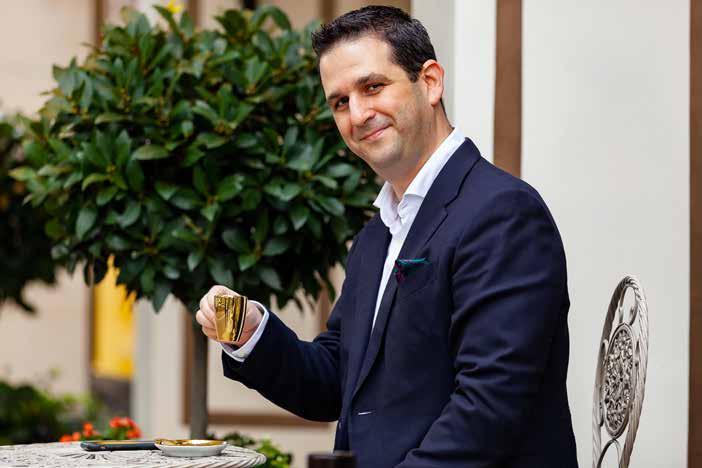
How did you come to exclusively supply Parcafé?
I approached The Dorchester in 2018 and said, “Look, you have the best clients in the world – you consider yourselves among the best hotels in the world – so if you can’t offer the best coffee beans then who can, right?” If you look at speciality coffee shops, one of the problems is that nobody really understands what speciality means. I wanted to make it simple to offer really incredible coffees. We introduced a really solid filter, a solid espresso and then two premium offerings. We offer a Brazilian coffee called Daterra Espresso Collection, which is graded 80-plus and really chocolatey and nutty. For filter and cold brew, we offer a coffee called Moonlight – another from the Daterra collection – it’s one of my favourites, much better than you’ll get elsewhere. And then, of course, we have Jamaica Blue Mountain as a premium espresso and the Esmeralda Geisha from an estate called Hacienda La Esmeralda in Panama. They won best producer in Panama just this year; they’re unbelievable.
How has the relationship with Parcafé developed this year?
I really like Parcafé because of its location on Park Lane and because of the opportunity I saw within the café itself. I saw a place that looks amazing, has all the correct equipment already, and has a diverse group of baristas who know exactly what they’re doing. The staff themselves are a huge part of what we loved about the café; we did a little bit of training with them, but they are so good at what they do that working with them is a no-brainer.
Differencecoffee.com
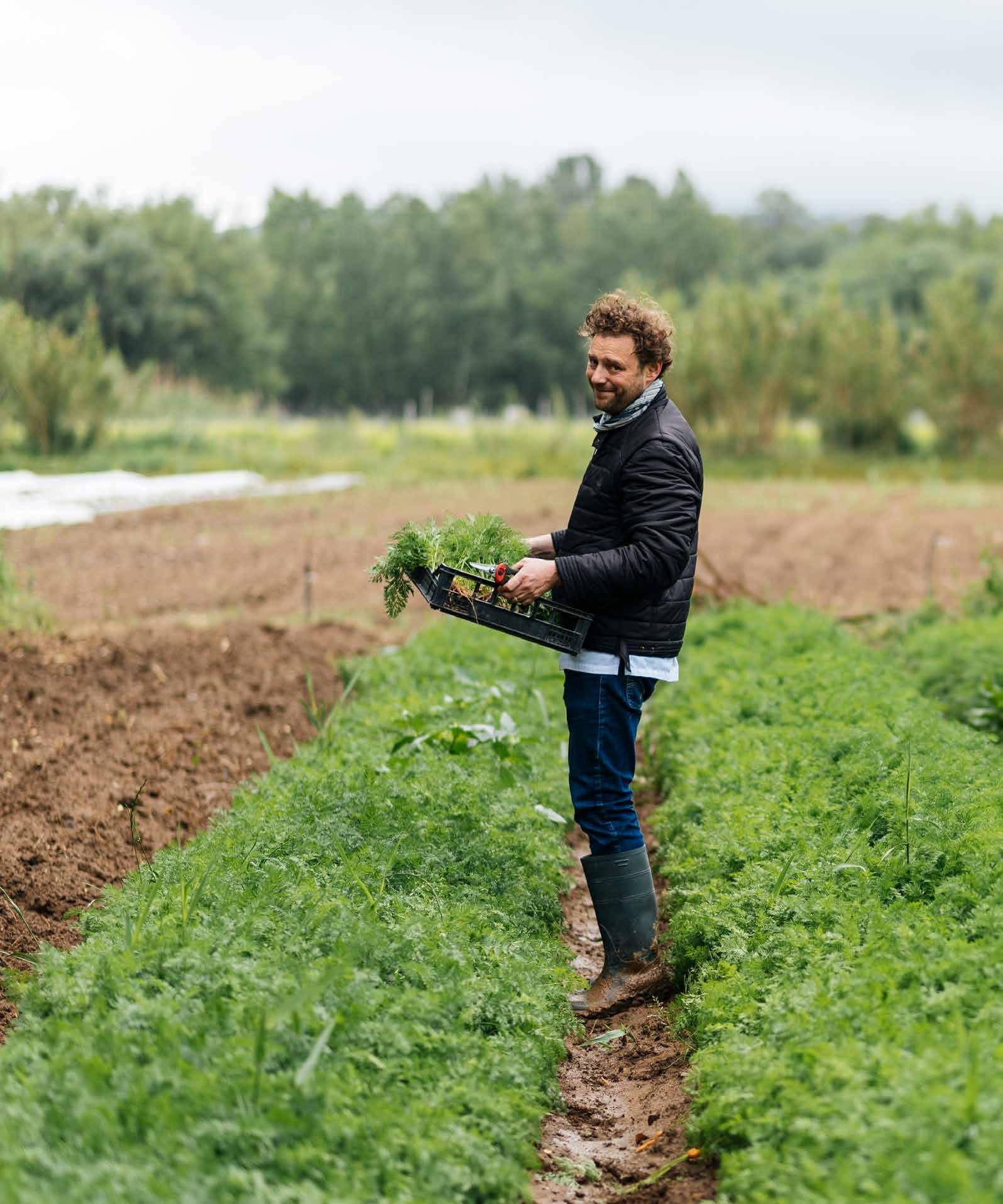
SERVING UP SUSTAINABILITY

The world’s leading chefs are focusing more than ever on fusing fine dining with environmental responsibility
Words: Lauren Jade Hill
Dine at one of the world’s most prominent fine dining restaurants and you’ll likely find out more than you ever expected about the local environment and people. The catalyst for this trend is the endeavour for sustainability, as chefs increasingly look to play their part in championing environmental responsibility, using native ingredients, working with local farmers and integrating more plant-based dishes into their menus. Tempus speaks to the celebrated chefs garnering attention for their sustainability efforts, as well as their culinary mastery.
ANDREAS CAMINADA
The three-Michelin-starred restaurant Schloss Schauenstein lies within the castle hotel from which it takes its name, in Switzerland’s Domleschg Valley. The restaurant’s chef, Andreas Caminada, is an advocate for sustainability – so much so, he was awarded the Sustainable Restaurant Award at the World’s 50 Best Restaurants Awards 2019.
“Sustainability should be important to anyone in this industry,” he tells Tempus. “As chefs we are privileged to work with what nature has to offer, and as food brings people together, the restaurant is one place you can easily create awareness. This topic has seen a major evolution within the food scene since starting in off-the-beaten-track restaurants with chefs who were bold enough to do things differently. Today at Schloss Schauenstein we are closer than ever to nature.”
Now, Caminada and his team harvest as much as possible from the restaurant’s gardens and they work closely with organic farmers who bring ingredients including artichokes, quince and saffron to the kitchen each day. They then pay tribute to nature by using 100% renewable hydro energy. “This is more than just a one-man-show,” says Caminada, “It takes the dedication and ideas of all the team.”

schauenstein.ch





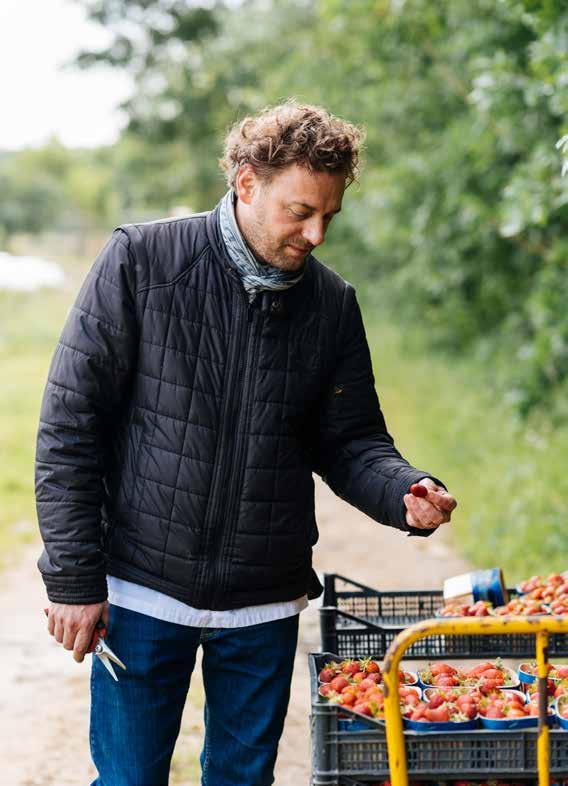
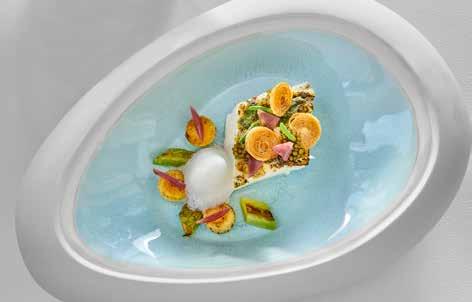
ARNAUD DONCKELE
Arnaud Donckele is the chef behind Saint-Tropez’s only threeMichelin-starred restaurant, La Vague d’Or, in the plush Cheval Blanc St-Tropez. With restaurant and hotel both open seasonally, Donckele dedicates the entire off-season to cultivating produce and working with local farmers and artisans. This approach is rooted in Donckele’s drive for sustainability.
“Society is realising the physical impact we are having on our planet,” he explains. “And people are reacting to this news in every part of their lives, including what they consume. It is not simply a trend, but rather a lifestyle we need to adopt if we wish to continue pursuing our passion and creation so freely.”
“Chefs are now taking more interest in sourcing their ingredients locally,” he continues. “Creating meaningful connections with farmers around them and altering their menus in a way that aims for zero waste. It gives you the opportunity to alter your philosophy in a way that doesn’t just benefit the planet, but your restaurant as well. By using nearby resources, chefs can invent dishes that remain native to the environment, creating a connection with the area as well as its people.”
This is a philosophy we can also expect to see through Donckele’s upcoming role as executive chef of the soon-toopen Cheval Blanc Paris. “Fine dining is just as much about the experience,” he enthuses, “as it is about the dish itself.” »
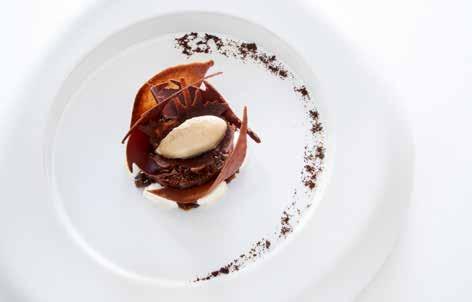

When Colagreco opened Mirazur on the Cote d’Azur, he carved out an identity based on the restaurant’s position within lush gardens between the mountains and coast. This year, the restaurant was awarded its third Michelin star and it came top of the World’s 50 Best Restaurants 2019 list. With such a focus on the surrounding environment, sustainability is key.
“We are all obliged to stop and focus on sustainability and the future of our planet,” Colagreco tells us. “As chefs, we are in direct contact with products and producers and we benefit from a visibility that allows us to have a very direct impact on the social fabric. We have a responsibility to dictate trends, educate our teams and share our values with a wider audience around the world.”
For Mirazur, along with other fine-dining restaurants, this awareness has continually grown in recent years. “At Mirazur, we are very aware of reducing our carbon footprint and food waste. We cultivate the garden with organic permaculture techniques, work with small local producers and use seasonal ingredients. We take every opportunity to deepen our knowledge on the subject of eco-sustainability.” This effort includes working with suppliers to eradicate the use of plastic. “It is a long process,” he says, “but we have already made great progress.”


mirazur.fr

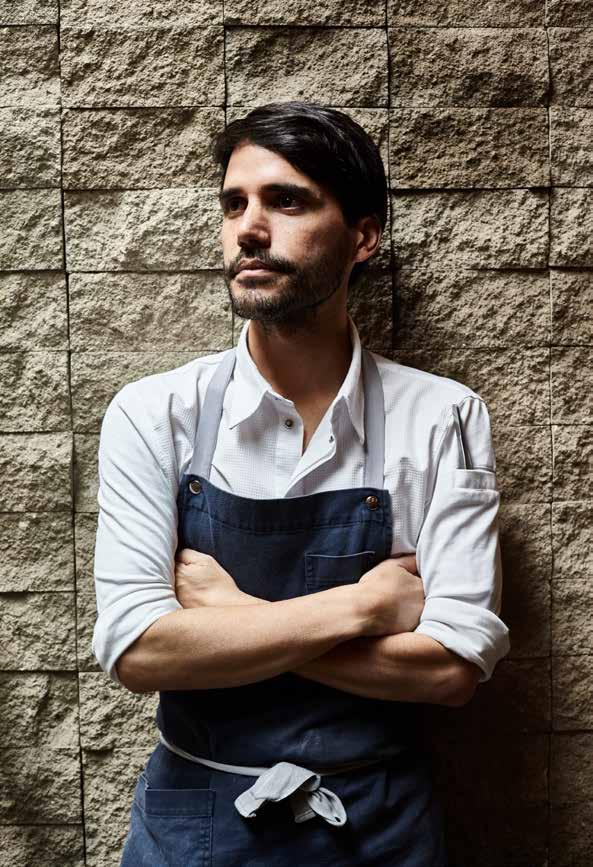
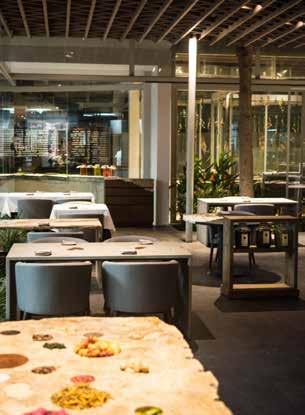

VIRGILIO MARTINEZ
Each venture in Virgilio Martinez’s portfolio has one defining characteristic in common. They all champion Peru’s native ingredients and ancient culinary traditions. Martinez and his team collect indigenous ingredients from each elevation of Peru’s diverse landscape for the creative fine-dining plates at his Lima restaurant Central – which is currently number six in the World’s 50 Best Restaurants list– as well as his 2018-opened restaurant Mil in the Sacred Valley.
“Fine dining and being sustainable cannot be in contradiction,” he says. “I used to see fine dining as a chef making food beautiful without any awareness of how much waste and how many resources they were using. Now the delicacy, uniqueness and beauty must come from sustainable values.”
“To increase sustainability you need to be open to change and your creativity must come from a sustainable way of thinking.” It’s with this approach in mind that Martinez endeavours to seek out ingredients that benefit the natural ecosystems, territories and people. “For us, it is about drawing on traditions and presenting them in a contemporary way with sustainable values,” he concludes. “In this way, we create an understanding of what ingredients are coming to the restaurant.”



ALAIN PASSARD
Chef of three-Michelin-starred, 1986-opened Parisian restaurant L’Arpège, Alain Passard proved his lasting influence on the culinary world earlier this year when he was presented with the Chefs’ Choice Award at the World’s 50 Best Restaurants Awards in Singapore. Having long devoted his creativity to cooking almost entirely with plants, many experts in the industry consider Passard a pioneer of plant-based cuisine.
The chef sources seasonal ingredients from his three biodynamic gardens, hand-harvesting produce before creating fine dining plates using the finest vegetables cooked over flames. “To give the best quality ingredients to diners, you need to respect the seasons and work with local producers who cultivate naturally,” he explains. “We don’t have to eat tomatoes in winter or cucumber in January; it’s wonderful to rediscover produce as nature offers it to us.”
“At L’Arpège, our entire system is sustainable,” he continues. “We grow our own vegetables 100% naturally; we keep the peel to feed the garden; and we respect the seasons in menus that change daily according to what ingredients we receive.” All of this culminates in three-Michelin-star dishes each celebrated for retaining the essence of each plant.



